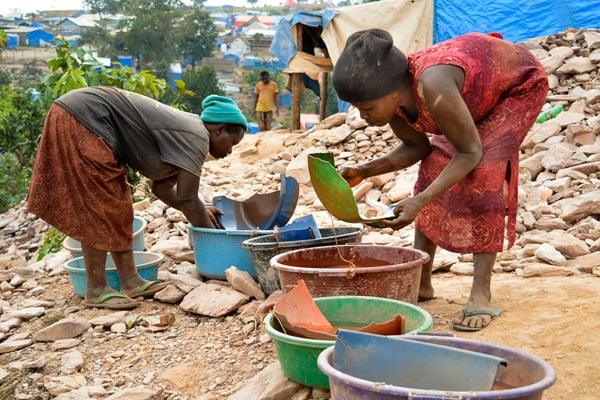
Charity Agaba
For the past 30 years, a few multinational corporations have dominated the mineral value chain, processing 99 percent of these minerals outside of Africa. This control is so strong that African countries like Uganda or Democratic Republic of Congo have no influence over pricing or market access.
Despite its mineral wealth, the African continent is one of the largest global recipients of foreign aid, receiving $1.2 trillion between 1960 and 2021, making it one of the largest aid recipients on the planet.
African nations have not benefited from local processing, streamlined operations, or innovations in the mining sector. If these countries processed their minerals locally before exporting them, they could potentially triple the price and significantly enhance their economic situation. This strategy would also help African nations reduce their reliance on development aid.
As of 2022, Africa possessed 30 percent of the world’s green metals and minerals, including significant reserves of platinum, cobalt, and chromium. Despite this, the continent receives less than 10 percent of global mining exploration funding.
The S&P Global World Exploration Trends 2023 report notes that while exploration investments in Africa increased by 11.6 percent, this growth is still below the global average. Africa’s mineral wealth places it at the forefront of the sustainable energy shift, with rising demand for electric vehicles and renewable technologies emphasising its crucial role.
The 2017 World Bank report underscores Africa’s potential to significantly contribute to global efforts in reducing carbon emissions and advancing a sustainable energy future.
To fully harness Africa’s rich green minerals, governments should focus on investing in local mineral processing infrastructure and attracting renewable energy investors.
The 2017 World Bank report highlights that developing domestic processing capabilities can substantially increase the value of raw minerals and provide significant economic benefits.
Moreover, fostering a supportive environment for renewable energy investors can further leverage Africa’s mineral wealth, promote sustainable development, and decrease reliance on external aid. These measures are essential for ensuring Africa benefits from its resources and becomes a leader in the global transition to green energy.
In conclusion, by investing in local processing infrastructure and attracting renewable energy investors, African countries can enhance the value of their minerals and reduce dependence on foreign aid.
This strategic shift will improve economic outcomes and position Africa as a key player in the sustainable energy future.
Charity Agaba is the chairperson of Youth Committee, UNESCO (Uganda) and a member of EU-Youth Sounding Board Uganda.




